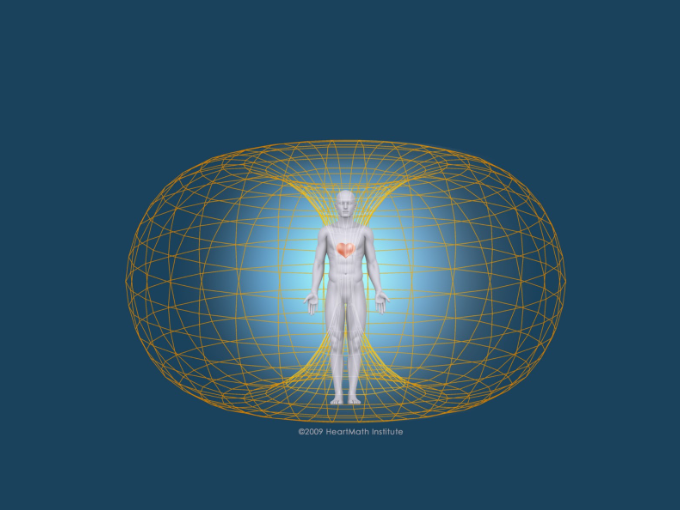What is the Process of Good Therapy?
November 7, 2024
‘Good Therapy’ is a term I coined having worked in the field of health for most of my adult life. It is important to completely renovate the concept of therapy simply because it’s now urgent. It is important because of the immense mountain of ‘Everything Else’ out there and because the heaving and gasping system around health is now itself officially broken, beyond repair. Dead in the water.

Fortunately, the broken system is so severe that the strength and beauty of the human spirit is now re-building societies in part, through the truth and integrity of integrated and cutting edge health service practitioners. Practitioners willing to be creative, working from their hearts and clued up about the world. I represent one of the millions of these Wardens of Light through the work that I do daily as a member of a global cohort that works in similar ways. All of the links and resources that I provide on this site are examples of such Wardens of Light.
Good Therapy
When embarking on a therapeutic relationship to address and heal trauma, understanding the process of good therapy is relevant for setting realistic expectations and achieving profound results that you can quantify. I say to my clients, “When therapy has long ended and you’re standing at the bar with your mate, and he says ‘How did therapy help you?’ you should be able to literally quantify it by hours, dollars and substantial changes in your perception, attitudes and wellbeing.
In dot points.
‘Well, I spent this much, these many hours and these are the significant changes that I now enjoy in my life, ongoing.’
In my humble opinion, if you can’t do that, you did not receive good therapy but you spent a lot of time and money on something you cannot quantify. In my 2nd opinion, this is unfair and dishonest and this way of working is outdated.
At 2nd Opinion Psychotherapy, effective therapy is a strongly collaborative effort that unfolds in distinct phases as the relationship develops and the needs are addressed in priority.
It’s also of note that the therapeutic process will look different for each person, and a good psychotherapist will attune to your specific needs, challenges and work to weave therapy into daily life. While there are key steps and phases to the process of good therapy, being flexible and creative within the therapeutic framework, ensures a resolution tailored to your unique situation.
1. Head: new concepts / foundations
Roughly the first three months of therapy, the introductory phase, we address immediate concerns and establish a solid therapeutic foundation together. A container of trust, as it is otherwise known. During this time, we do not typically approach underlying or deeper problems, prioritising the alleviation of distress and the building of a relationship. You are introduced as well, to a completely new therapeutic culture, ideas and concepts.
During this period, the focus is on safety and stabilisation –
Symptom Relief: Mental and emotional distress are addressed immediately as the priority, and within the early stages of a new relationship. The key here is a term called titration – small steps that bring partial and essential relief, and with it a renewed sense of hope.
Nervous System Regulation: Using methods like Brainspotting (Resource model), and HeartMath skills, we work to calm your nervous system and create a sense of safety and re-balance.
Building Trust: A cornerstone of good therapy is the relationship between therapist and client. Each session is inherently rhythmic, building a culture of warmth, communication and clarity, that grows the structure or container of integrity; where you can feel heard and understood. Much like a terracotta pot for planting! 🙂
Nourishing the System: And just as a plant needs proper nutrients to grow, your mind and body need nourishment to heal. We explore natural approaches to support your overall wellbeing, drawing from my background in Anthroposophic psychology and a life lived in good health. You will be surprised at how much you come to enjoy the wisdom of simplicity over complex ideas, and how your body is overjoyed with it.
Elements of Education: During this beginning phase, I have the responsibility to ensure you understand through teaching as well. Lessons learnt in therapy and taught by a caring and astute practitioner will remain with you throughout life.
2. Heart: The body of the work
At the three month mark, we are ready to conduct a review of all sessions and reassess what is now needed. Three-monthly reviews are a normal part of Good Therapy, keeping the therapist accountable and the purposes clear.
Once we’ve established a solid foundation together, we begin addressing the causes of trauma, and long-term patterns of pain and powerlessness. This is where the transformative aspects of therapy truly unfold, and where clients start to feel the benefits of deep neurophysiological change. Not only are you ready to look at your own biographical map and see where it may have begun, but we go there together and make amends. And it’s ok.
Clients will say to me repeatedly, “I just want to get rid of it!!” The task is not to excise parts of your life, however you might feel like that. Pressing Delete is not a wise or realistic option and finds it’s expression in Addiction ultimately. The task is to integrate the painful parts of your life into one seamless cloth that you can see and feel with wisdom and clarity and acceptance. This is the work. And what we ‘get rid of’ is the cyclic and painful distress locked inside traumatic memories. It is a beautiful and handcrafted change that we curate together. From the relentlessness of traumatic cycles, to the relief of progressive recovery.
Addressing Root Causes: By exploring past traumas, relationship patterns, or core beliefs, we work directly through the body’s responses and the physiology in general to access and relate to the body’s felt memories and neural circuitry.
Integrative Approaches: Utilising my diverse training, including Brainspotting, EMDR, and HeartMath(trademark,) we deploy a tailored combination of approaches to facilitate profound healing and change.
Embodied Healing: Good therapy prioritises the body over the mind. Our focus is on somatic experiences and intuitive wisdom to access truths that talk therapy alone might miss and may never address the distress that keeps you trapped, because talking through things simply doesn’t activate the relevant parts of your brain that need to be activated in order to bring resolution.
If your therapist is talking with you session after session, nothing is going to change for you. Not where it matters most. And if your therapist is talking with you about traumatic memories session after session, you may become re-traumatised. While it may sound counter-intuitive, the time to go into detail with you about your traumatic history, is after the trauma has been processed! (Yes, you read that right.)
Embodied wellbeing means that you feel much better throughout your body. Example – Sadness can be felt in the chest – tight, heavy, hot etc. After good therapy these sensations are no longer there, but have been resolved through neurobiological processing. The sadness is then freed up conceptually to become something that feels better, perhaps ease, acceptance, neutrality, and furthermore has now become a source of insight and wisdom. You have processed it, and can now heal from it. Can you imagine how much better daily life can feel when you are now unburdened but also have the depth of insight?
That’s life-changing. That’s Good Therapy.
3. Hands: return to the world
Easing back a little : At this stage of our relationship, we may be ready to put a little space between sessions. You are feeling much better, life is reflecting that to you, issues you are aware of are feeling neutral, you are sleeping better, some medications can be reduced through consultation with your doctor, and life in general is feeling easier and you are more optimistic overall. We have likely conducted several 3-monthly reviews and the hardest work is behind you.
Empowerment and Autonomy: As we progress, you’ll develop greater self-awareness and self-regulation skills. You will notice that you no longer respond the same to previous ‘triggering’ events. Eventually, others begin to comment on how much at ease you now appear and you agree! Three-monthly reviews for my clients allow me to conduct a comprehensive review of the previous three months of work together. Reviews at this stage are really like housekeeping and slowly winding up the process, while ensuring we miss nothing.
A journey of transformation through body intelligence

The process of good therapy is a profound journey of self-discovery and healing. It requires courage, commitment, and a willingness to explore uncomfortable truths. It is important that you are willing and able to participate, and this is assessed in the initial stage, while still progressing.
At 2nd Opinion Psychotherapy, I’m committed to providing the highest quality care to support you on this journey. Whether you’re seeking relief from acute symptoms or looking to address deeper, long-standing issues, I’m here to help you reclaim your lifeblood and feel that your goals and dreams are where you initially put them – close at hand and achievable.
Remember, seeking help is a sign of strength, and a flash of sanity! Reaching a state of hopelessness and making contact with real help, is filled with inspiration and immeasurable wisdom. If you have chosen to do that by contacting me, I recognise the job it’s been to get you here and I applaud you. 🙂
For further hand-written stuff from me, read more blogs, or get in touch.
To learn more about our therapeutic approaches, and browse through our list of hand-picked resources.

“The elements of divine parenting echo through Good Therapy, by receiving a client with reverence and caring for them to achieve flight.”
Anne Ligthart
Leave a Reply Cancel reply
2025 2ND OPINION PSYCHOTHERAPY
PRIVACY POLICY
WEBSITE BY THE STORY SHED
PHOTO CREDIT: BRUCE HAGGIE PHOTOGRAPHY
PHOTOS OF AZIA LIGTHART, WITH PERMISSION
[…] (See the blog on The Process of Good Therapy. […]